Say Your Piece, Supreme Court Advocates. But Only for Two Minutes
The U.S. Supreme Court's hot bench will cool down, at least for the opening two minutes of an advocate's argument, according to a new guide. "Let's see how long it lasts," one scholar says.
October 04, 2019 at 01:29 PM
5 minute read
The original version of this story was published on National Law Journal
 The U.S. Supreme Court advises that advocates now generally will get two minutes of uninterrupted argument time at the start of a session.
The U.S. Supreme Court advises that advocates now generally will get two minutes of uninterrupted argument time at the start of a session.
In the rarefied world of U.S. Supreme Court practice, change comes slowly, and traditions are held dear.
Which is why the court's sudden announcement Thursday that advocates will be given two minutes of uninterrupted time at the beginning of oral argument is such a big deal.
"This is a dramatic change," said David Frederick, a partner at Kellogg, Hansen, Todd, Figel & Frederick and author of a book about Supreme Court advocacy that includes a chapter on how to handle the opening minutes of oral argument. "For the last quarter century, advocates have had no expectation of getting to speak more than a couple of sentences before being interrupted with questions."
Frederick added, "With this change, advocates will have to really think hard about how to deploy those two minutes."
The genesis of the two-minute respite is unknown, though several justices have openly empathized with advocates who have to field a barrage of questions from the hot nine-justice bench without uttering a word of their own choosing.
The change was promulgated, not as a rule of the court, but in pages seven and eight of the newly revised "Guide for Counsel" issued by the clerk of the court. It states that justices "generally" won't ask questions of either party in the case during the first two minutes of their argument time.
That caveat has already spawned speculation that eager justices might ignore the plan and jump in early, or that skilled advocates might show off their prowess by signaling to the justices that they don't need two question-free minutes.
Here's a roundup from social media of some of the things advocates are saying about the change in argument format:
>> Ruthanne Deutsch of Deutsch Hunt PLLC: "Also maybe to let the advocate tee up the issues and allow the justices to focus their questions after sussing out strengths and weaknesses of both case and lawyer. Oral arg prep for #SCOTUS args just got VERY different."
>> John Elwood of Arnold & Porter: "Given the increased specialization of the #SCOTUS bar, I expect this opening precis to be the most exquisitely crafted persuasive prose the advocate has written since their college application essay—or their previous #SCOTUS argument."
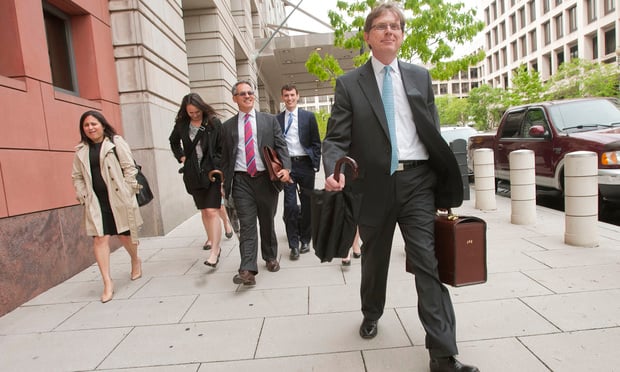 John Elwood, above right, outside the U.S. District Court for the District of Columbia. Photo: Diego M. Radzinschi/ ALM
John Elwood, above right, outside the U.S. District Court for the District of Columbia. Photo: Diego M. Radzinschi/ ALM>> Sean Marotta of Hogan Lovells: "Shock wave through the #SCOTUS bar. (I bet advocates for next week are now scrambling, realizing they'll need to prepare two minutes of material!)"
>> Lindsay Harrison of Jenner & Block: "I feel like it's a huge opportunity for respondents, assuming they use it like rebuttal to react to key points made during petitioner's arg, and kind of a waste for petitioners."
>> Sarah Harrington of Goldstein & Russell: "Very interesting change. I've always waived opportunities for uninterrupted time at argument, but there are certainly times when it would have been nice."
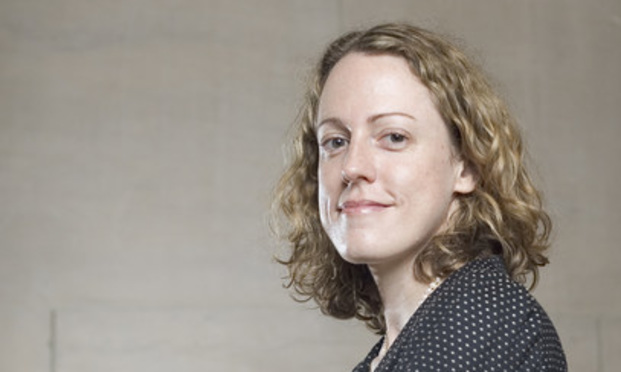 Sarah Harrington of Goldstein & Russell. Credit: Diego M. Radzinschi
Sarah Harrington of Goldstein & Russell. Credit: Diego M. Radzinschi>> Orin Kerr of University of California Berkeley School of Law: "I find this a bit puzzling. I've always assumed argument is wasted time until the 1st question is asked; why extend that? Maybe for less experienced counsel, to help them feel more comfortable?"
>> Garrett Epps of University of Baltimore School of Law: "Has anyone told Justice Sotomayor?"
>> Kent Greenfield of Boston College Law School: "I can't remember a single case I've ever witnessed or listened to in which the first Q occurred after 2 mins. So this is a big change in practice. Let's see how long it lasts."
Read more:
How to Tell a Justice They're Wrong
Sotomayor, Kagan Are Interrupted the Most at Oral Arguments: Study
Arnold & Porter Snags SCOTUS Veteran John Elwood From Vinson & Elkins
Supreme Court Advocates Push Back on 'Harmful' Proposed Word Limits
Bananas for Breakfast … And More Advice for SCOTUS Advocates
This content has been archived. It is available through our partners, LexisNexis® and Bloomberg Law.
To view this content, please continue to their sites.
Not a Lexis Subscriber?
Subscribe Now
Not a Bloomberg Law Subscriber?
Subscribe Now
NOT FOR REPRINT
© 2025 ALM Global, LLC, All Rights Reserved. Request academic re-use from www.copyright.com. All other uses, submit a request to [email protected]. For more information visit Asset & Logo Licensing.
You Might Like
View All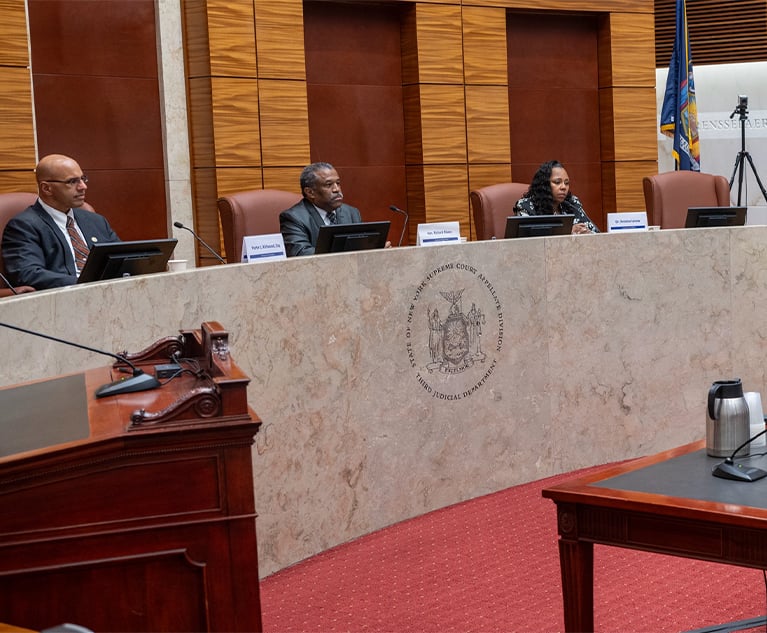
'Reluctant to Trust'?: NY Courts Continue to Grapple With Complexities of Jury Diversity
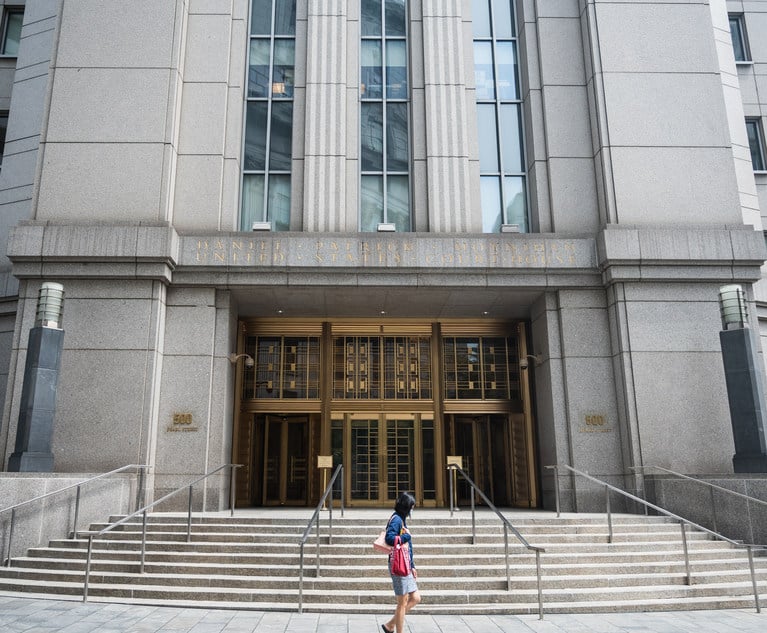
Ex-SDNY Clerk Can't Convince 2nd Circuit That Bribery Sentence Was Improper
3 minute read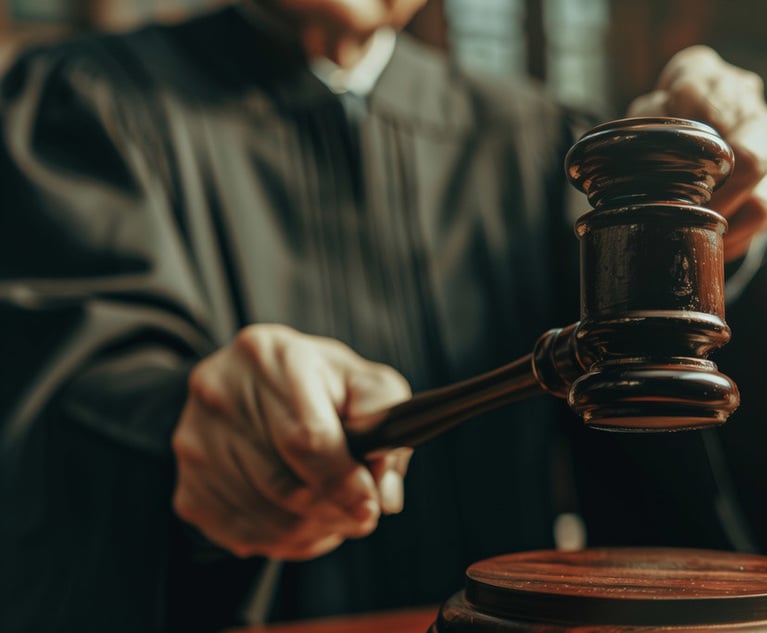
Who Are the Judges Assigned to Challenges to Trump’s Birthright Citizenship Order?
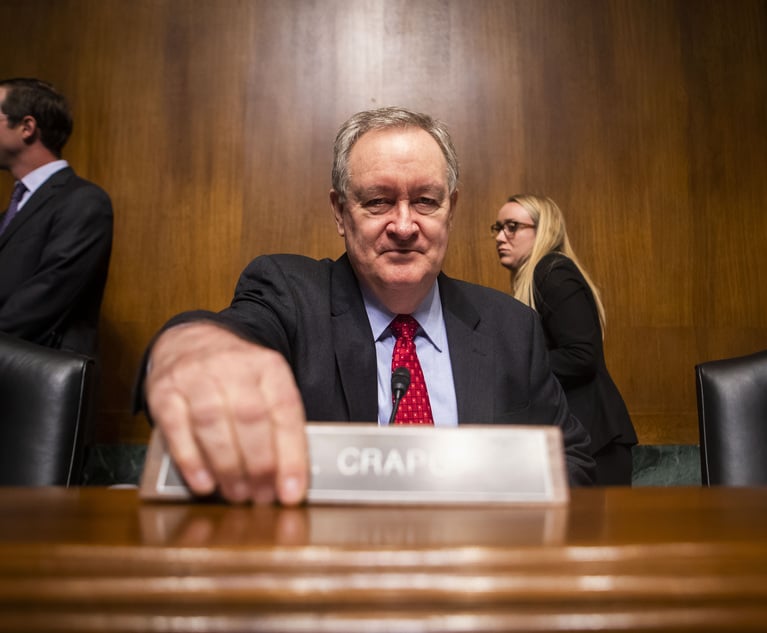
Senator Plans to Reintroduce Bill to Split 9th Circuit
Trending Stories
- 1We Must Uphold the Rights of Immigrant Students
- 2Orrick Picks Up 13-Lawyer Tech, VC Group From Gunderson Dettmer
- 3How Alzheimer’s and Other Cognitive Diseases Affect Guardianship, POAs and Estate Planning
- 4How Lower Courts Are Interpreting Justices' Decision in 'Muldrow v. City of St. Louis'
- 5Phantom Income/Retained Earnings and the Potential for Inflated Support
Who Got The Work
J. Brugh Lower of Gibbons has entered an appearance for industrial equipment supplier Devco Corporation in a pending trademark infringement lawsuit. The suit, accusing the defendant of selling knock-off Graco products, was filed Dec. 18 in New Jersey District Court by Rivkin Radler on behalf of Graco Inc. and Graco Minnesota. The case, assigned to U.S. District Judge Zahid N. Quraishi, is 3:24-cv-11294, Graco Inc. et al v. Devco Corporation.
Who Got The Work
Rebecca Maller-Stein and Kent A. Yalowitz of Arnold & Porter Kaye Scholer have entered their appearances for Hanaco Venture Capital and its executives, Lior Prosor and David Frankel, in a pending securities lawsuit. The action, filed on Dec. 24 in New York Southern District Court by Zell, Aron & Co. on behalf of Goldeneye Advisors, accuses the defendants of negligently and fraudulently managing the plaintiff's $1 million investment. The case, assigned to U.S. District Judge Vernon S. Broderick, is 1:24-cv-09918, Goldeneye Advisors, LLC v. Hanaco Venture Capital, Ltd. et al.
Who Got The Work
Attorneys from A&O Shearman has stepped in as defense counsel for Toronto-Dominion Bank and other defendants in a pending securities class action. The suit, filed Dec. 11 in New York Southern District Court by Bleichmar Fonti & Auld, accuses the defendants of concealing the bank's 'pervasive' deficiencies in regards to its compliance with the Bank Secrecy Act and the quality of its anti-money laundering controls. The case, assigned to U.S. District Judge Arun Subramanian, is 1:24-cv-09445, Gonzalez v. The Toronto-Dominion Bank et al.
Who Got The Work
Crown Castle International, a Pennsylvania company providing shared communications infrastructure, has turned to Luke D. Wolf of Gordon Rees Scully Mansukhani to fend off a pending breach-of-contract lawsuit. The court action, filed Nov. 25 in Michigan Eastern District Court by Hooper Hathaway PC on behalf of The Town Residences LLC, accuses Crown Castle of failing to transfer approximately $30,000 in utility payments from T-Mobile in breach of a roof-top lease and assignment agreement. The case, assigned to U.S. District Judge Susan K. Declercq, is 2:24-cv-13131, The Town Residences LLC v. T-Mobile US, Inc. et al.
Who Got The Work
Wilfred P. Coronato and Daniel M. Schwartz of McCarter & English have stepped in as defense counsel to Electrolux Home Products Inc. in a pending product liability lawsuit. The court action, filed Nov. 26 in New York Eastern District Court by Poulos Lopiccolo PC and Nagel Rice LLP on behalf of David Stern, alleges that the defendant's refrigerators’ drawers and shelving repeatedly break and fall apart within months after purchase. The case, assigned to U.S. District Judge Joan M. Azrack, is 2:24-cv-08204, Stern v. Electrolux Home Products, Inc.
Featured Firms
Law Offices of Gary Martin Hays & Associates, P.C.
(470) 294-1674
Law Offices of Mark E. Salomone
(857) 444-6468
Smith & Hassler
(713) 739-1250








